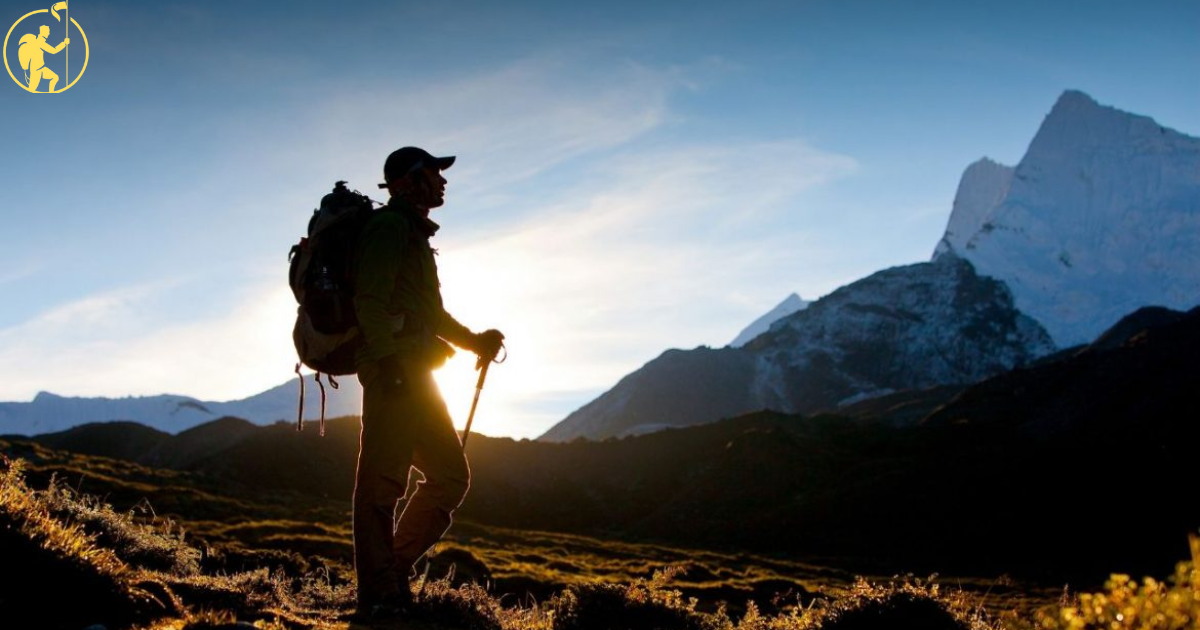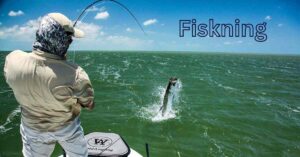Hiking A Sport considered a recreational activity, involves walking outdoors on trails or natural terrain. While it incorporates physical exertion and can be competitive, it typically emphasizes enjoyment and connection with nature rather than strict competition. Thus, whether hiking is classified as a sport depends on individual perspectives and goals.
Embark on a journey where each step is a heartbeat, as hiking transforms from a mere activity to a pulsating rhythm of exploration. The trail unfolds like a gripping story, inviting you to decode its secrets and embrace the wilderness. Is hiking just a sport, or a symphony of discovery echoing through untamed landscapes?
Many enthusiasts who enjoy outdoor activities consider hiking. It involves walking for extended periods in natural environments, promoting physical fitness. offers a great way to connect with nature and is accessible to people of various fitness levels. Whether for exercise or recreation, hiking provides a rewarding and enjoyable experience for individuals seeking an active lifestyle.
Do You Consider Hiking to Be a Sport?
Hiking, a popular outdoor activity, sparks debate on its classification as a sport. Some argue that it’s merely a leisurely pursuit, emphasizing nature exploration and tranquility. Others contend that the physical exertion and skill required deem it a sport.
For enthusiasts, hiking’s charm lies in its simplicity and accessibility. Its lack of competitive structure aligns more with recreation than traditional sports. On the contrary, those highlighting its rigorous challenges assert that the endurance and technique demanded elevate hiking to sport status.
Ultimately, the distinction between sport and pastime remains subjective, with hikers enjoying the activity’s diverse facets.
What Makes Hiking Not a Sport?
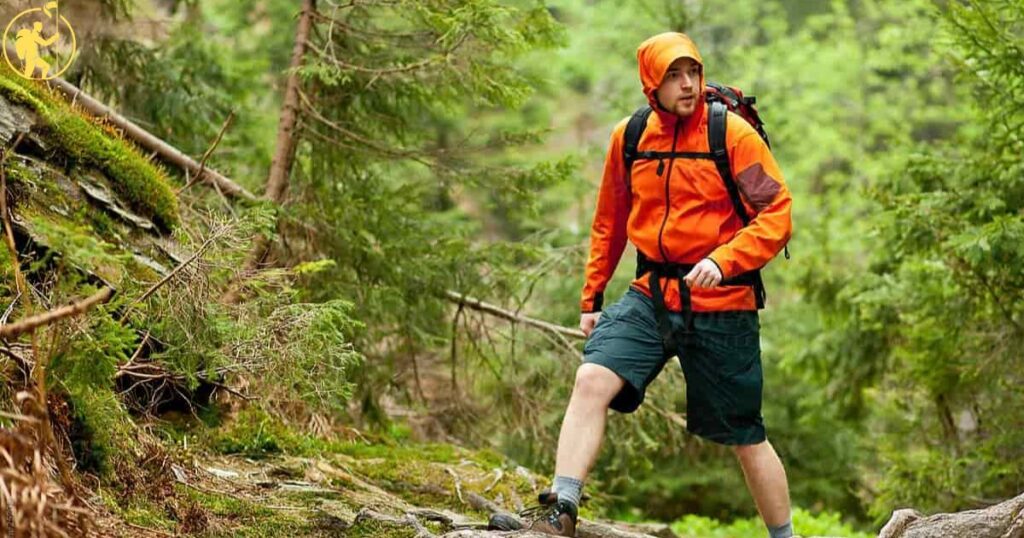
Hiking, unlike traditional sports, lacks competitive elements and structured rules. It revolves around personal exploration of nature rather than competitive achievement. While physical activity is involved, the absence of direct competition distinguishes hiking from sports
Moreover, hiking doesn’t have standardized scoring or a competitive framework. Participants typically focus on enjoying the journey and scenery, emphasizing personal fulfillment. In essence, the absence of a competitive structure classifies hiking as a recreational activity rather than a sport.
is hiking a sport or hobby?
- Hiking A Sport considered both a sport and a hobby.
- As a sport, hiking involves competitive events like trail running and speed hiking.
- Many enthusiasts view hiking primarily as a recreational hobby.
- Hiking can be a solo activity or enjoyed in groups, making it versatile for variofus preferences.
- In the USA, popular hiking destinations include national parks, trails, and scenic landscapes.
- Some people engage in hiking to stay physically fit, turning it into a fitness-oriented sport.
- For others, hiking serves as a peaceful and enjoyable outdoor pastime.
- Hiking may involve different levels of intensity, from leisurely walks to challenging climbs.
- Competitive hiking events often attract participants who seek to test their endurance and skills.
- Regardless of whether approached as a sport or hobby, hiking offers diverse experiences for outdoor enthusiasts in the USA.
How do I prepare for a hiking trip?
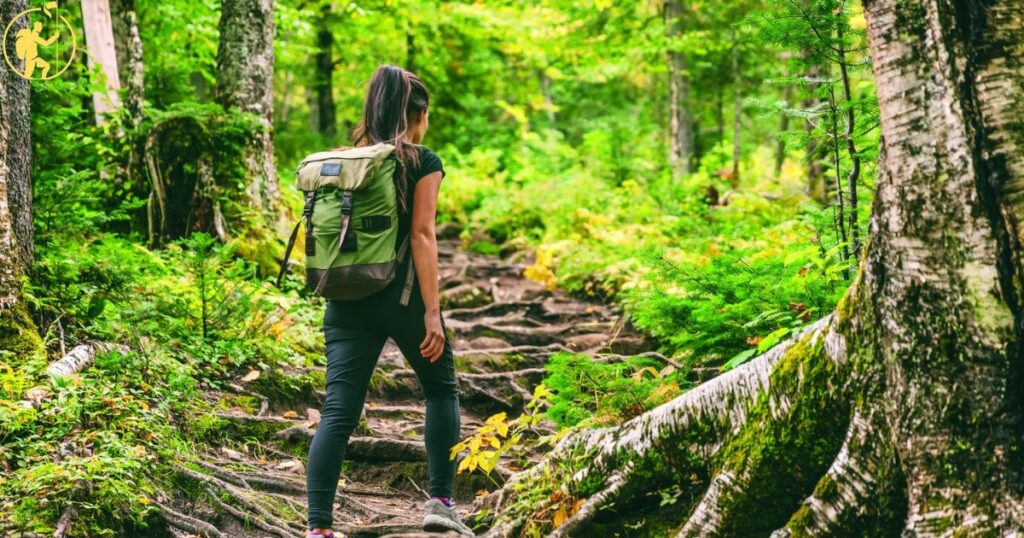
Planning a hiking trip? Start by researching the trail’s difficulty. Consider your fitness level and choose a suitable route. Check the weather forecast to pack appropriate clothing for the conditions. If you’re wondering, What Is Scramble In Hiking? – make sure to understand the trail features and any scrambling elements.
Create a checklist for essential items: water, snacks, first aid. Pack a backpack with layers, sunscreen, and a map. Tell someone your itinerary and expected return time for safety. Finally, enjoy the journey, stay hydrated, and embrace the outdoors.
What Makes Hiking a Sport?
“Hiking,” often considered a leisure activity, transforms into a sport for many enthusiasts. The rhythmic ascent of trails engages muscles, making it a full-body workout. The competitive edge emerges as hikers challenge themselves to conquer varied terrains.
Unlike traditional sports, What Is Hiking?” offers a unique connection with nature. The unpredictable outdoor elements add an adventurous dimension, enhancing the sport’s appeal. Hiking as a sport goes beyond physical fitness, fostering mental resilience and camaraderie among participants.
Definition of a Sport

Sports, fundamentally, are structured physical activities with established rules and objectives. These activities involve skill, competition, and often, teamwork among participants. Whether it’s running, swimming, or playing team games, sports contribute to physical fitness and mental well-being.
The distinguishing factor of sports lies in their competitive nature, fostering a sense of challenge and accomplishment. They encompass a wide range of activities, promoting health and social interaction. In essence, a sport is an organized pursuit that combines physical prowess with strategic thinking, creating a dynamic platform for individuals to showcase their abilities.
Definition of a Hiking?
Hiking is a recreational activity involving walking in natural landscapes. It typically takes place on trails or paths in scenic environments. Hiking provides individuals with an opportunity to connect with nature, promoting physical fitness and mental well-being.
A hike usually involves varying levels of difficulty, from easy strolls to challenging treks. Hikers often carry essentials like water, snacks, and appropriate footwear. Whether for exercise or enjoyment, hiking allows people to escape urban settings and embrace the beauty of the outdoors.
Hiking vs. Sports
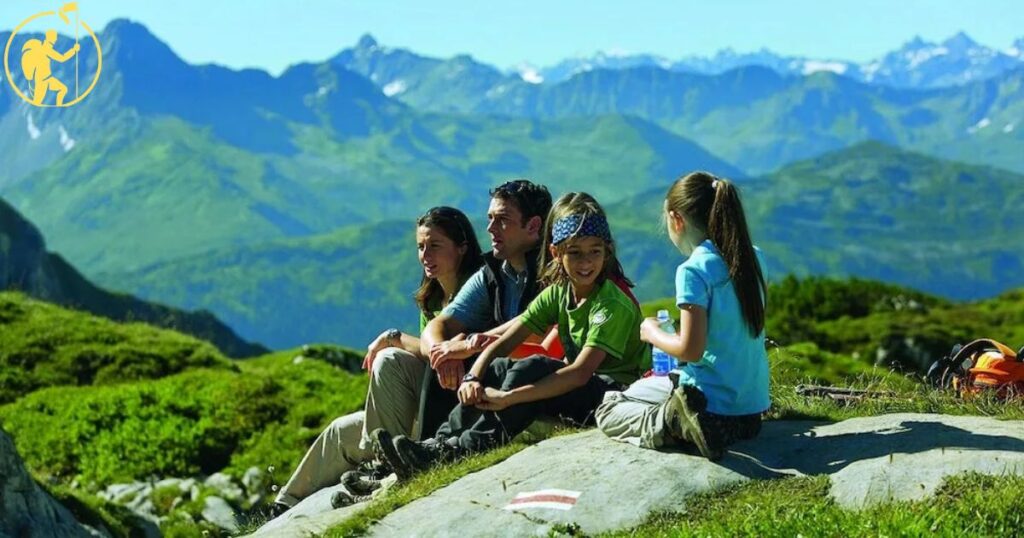
| Hiking | Sports |
| Hiking is a recreational activity of walking or trekking, often in natural environments such as mountains, forests, or trails. It focuses on enjoying nature and physical exercise. | Sports encompass a wide range of physical activities and competitive games that involve skill, strategy, and physical exertion. Sports can be individual or team-based. |
| National Parks (e.g., Yosemite, Grand Canyon) | Stadiums, arenas, and sports facilities nationwide |
| Hiking boots, backpack, trekking poles | Equipment varies widely (e.g., balls, bats, rackets) |
| Hiking trails, backpacking, camping | Basketball, football, soccer, baseball, tennis |
| Often a solitary or group activity in nature | Team-based and often involves organized competitions |
| Cardiovascular fitness, improved mental well-being | Physical fitness, muscle development, social interaction |
| Hiking – Prevalent | Sports – Common |
| Nature Walks, Trail Hiking, Wilderness Exploration | Team Sports, Individual Sports, Recreational Sports |
What is the Purpose of Hiking?
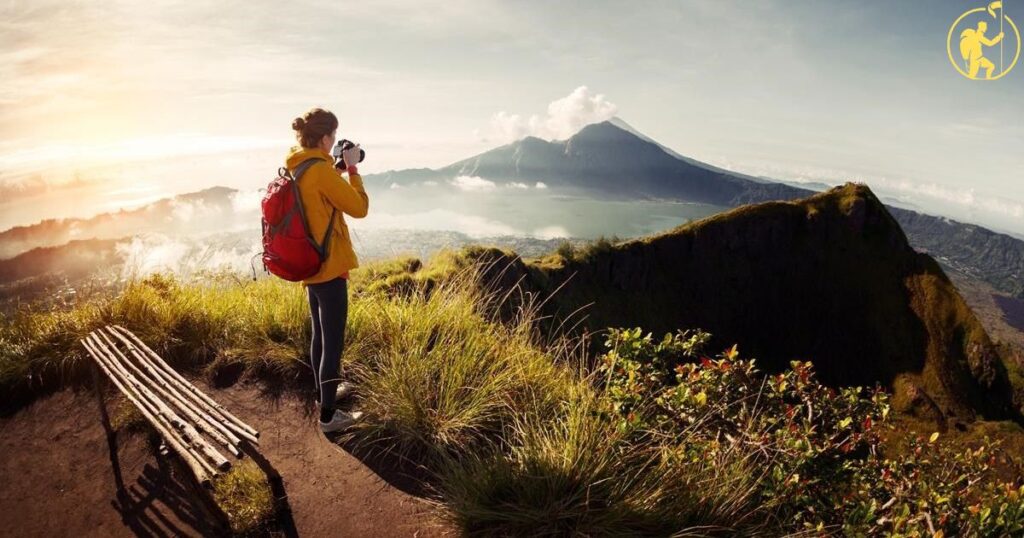
- Physical Exercise: Hiking A Sport as a fantastic way to stay physically active, promoting cardiovascular health and overall fitness.
- Mental Well-being: The activity offers a break from daily stress, fostering mental well-being through exposure to nature and fresh air.
- Connection with Nature: Hiking provides an opportunity to connect with the great outdoors, appreciating scenic beauty and the environment.
- Social Interaction: It can be a social activity, fostering camaraderie with friends, family, or fellow hikers on the trail.
- Escape from Routine: Hiking allows individuals to break free from the monotony of daily life, providing a refreshing change of scenery.
- Adventure and Exploration: The exploration of trails and unknown paths adds an element of adventure to one’s life.
- Challenge and Achievement: Overcoming hiking challenges, like difficult terrains, provides a sense of accomplishment and boosts self-confidence.
- Mindful Relaxation: Hiking encourages mindfulness, offering moments of relaxation as individuals immerse themselves in the present moment.
- Educational Opportunities: Hiking can be an educational experience, teaching about local flora, fauna, and ecosystems.
- Hobbies and Recreation: For many, hiking is a recreational hobby, offering a way to spend leisure time in an active and engaging manner.
Is Hiking Officially Recognized as a Sport?
Hiking, a popular outdoor activity, raises the question of its official sports status. While many enjoy the physical and mental benefits of hiking, it has not gained universal recognition as an official sport. The lack of competitive structures and standardized regulations contributes to the ambiguity surrounding Hiking A Sport classification.
Despite its non-official status, hiking enthusiasts continue to celebrate its inclusivity and accessibility. Hiking is cherished for promoting well-being and fostering a sense of community. While not officially recognized as a sport, hiking remains a beloved pursuit for those seeking nature’s embrace and a fulfilling physical activity.
So what is the point of hiking
Hiking serves as a gateway to nature’s wonders and hidden treasures. Exploring trails exposes us to breathtaking landscapes and fosters a deep connection with the outdoors. The point of Hiking A Sport lies in the joy of discovery, the physical challenge, and the refreshing escape it offers from the hustle of daily life.
Engaging in hiking contributes to both physical and mental well-being. It promotes fitness, strengthens muscles, and enhances cardiovascular health. Beyond the physical benefits, hiking also acts as a natural stress reliever, offering moments of tranquility that rejuvenate the mind. In essence, the point of hiking is not just reaching a destination, but the journey itself, filled with health benefits and a sense of wonder.
Is there such a thing as competitive hiking?

Is competitive hiking a real thing? Surprisingly, yes! Competitive hiking, also known as speed hiking or trail racing, is gaining popularity. Participants race against the clock, navigating challenging terrains to conquer the trails faster than their competitors do. Unlike traditional hiking, this dynamic sport combines endurance, strategy, and a love for the great outdoors.
In competitive hiking events, athletes cover long distances, facing diverse landscapes. Trail runners and hikers join forces, embracing the competitive spirit while appreciating the beauty of nature.
The thrill of the race, coupled with the serenity of the wilderness, makes competitive hiking a unique and exhilarating adventure for outdoor enthusiasts seeking a new level of challenge.
Physical Exertion in Hiking
Hiking, a simple yet profound activity, beckons individuals to connect with nature. The primary purpose of hiking is to escape the hustle and bustle of daily life. Surrounded by serene landscapes, hikers find solace and rejuvenate their spirits. The point of hiking lies in the peaceful communion with the outdoors.
- Physical and Mental Benefits
Beyond the scenic views, Hiking A Sport contributes to physical well-being. The rhythmic motion of walking enhances cardiovascular health. Additionally, the mental benefits are substantial, reducing stress and fostering a sense of accomplishment. In essence, the point of hiking extends beyond the trail—it is a holistic journey for mind and body.
Competitive hiking
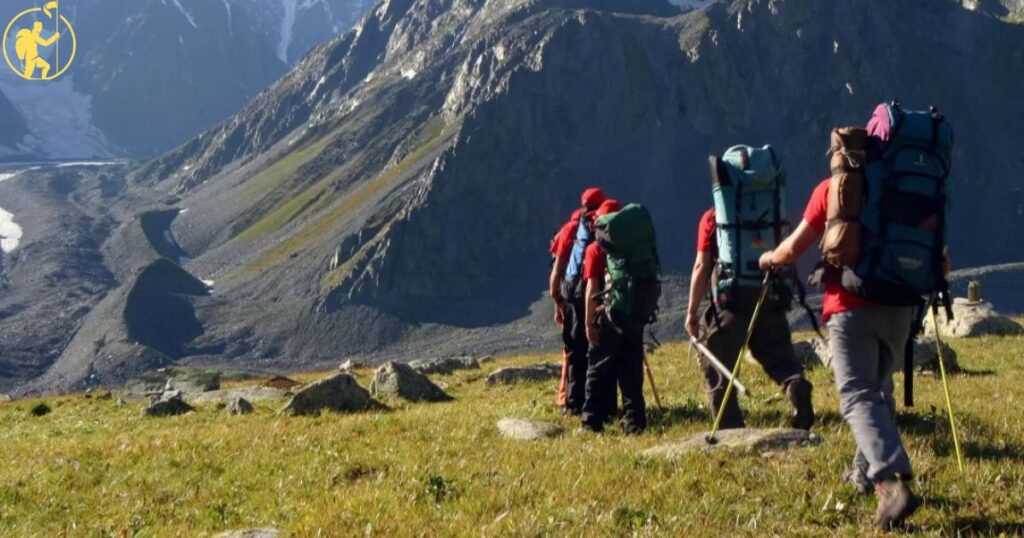
- Competitive hiking, also known as trail racing, involves participants racing against each other on challenging hiking trails.
- This Hiking A Sport combines elements of traditional Hiking A Sport with a competitive edge.
- Competitive hikers often navigate through diverse terrains, including mountains, forests, and rugged landscapes.
- Races can vary in distance, from shorter sprints to ultra-long endurance challenges, attracting participants with different fitness levels.
- Participants in competitive hiking events aim for speed and endurance while overcoming natural obstacles.
- Competitive hiking fosters a sense of community among outdoor enthusiasts who share a passion for both hiking and competition.
- Popular competitive hiking events in the USA include trail marathons, ultramarathons, and adventure races.
- Competitive hikers may utilize specialized gear such as lightweight backpacks, trail running shoes, and hydration systems for optimal performance.
- The Hiking A Sport offers a unique blend of physical fitness, mental toughness, and a connection with nature.
- Many competitive hiking events are organized in picturesque locations, showcasing the diverse landscapes the USA has to offer.
Frequently Asked Questions
What are the 3 basic skills in hiking?
Navigation, survival, and physical endurance are the three basic skills in hiking.
Are there different types of hiking?
Yes, there are various types of hiking, such as day hiking, backpacking, trekking, mountaineering, and trail running.
What is the difference between hiking and trekking?
Hiking is a recreational walk on well-defined trails, whereas trekking involves journeys that are more strenuous over varied terrains, often covering longer distances.
What is the toughest hiking?
Navigating rugged mountain terrain in extreme weather conditions poses the toughest hiking challenges.
Conclusion
In conclusion, our exploration of whether hiking qualifies as a sport has unveiled a fascinating perspective.
Navigating through the physical demands, competitive spirit, and mental resilience required for hiking, we find surprising connections with traditional sports.
Endurance, strategic planning, and a sense of accomplishment align with what many consider essential elements of a sport.
The trails themselves act as playing fields, providing a platform for individuals to challenge themselves physically and mentally.
Through this lens, it becomes evident that hiking embodies elements associated with sports.
The rhythmic crunch of gravel beneath boots and the steady beat of hearts echo a silent call to the athlete within.
Reflecting on outdoor adventures, we contemplate the blurred lines between conventional sports and the allure of the great outdoors. Regardless of a challenging ascent or a leisurely nature walk, hiking taps into the very spirit that defines sportsmanship.
Ultimately, it’s not about labeling hiking as a sport or not; it’s about embracing the exhilarating journey it offers. As the sun sets on our contemplation, the trails continue to beckon, inviting us to discover, challenge, and revel in the unique sport that is hiking.

J.K. Rolowing, an avid hiking enthusiast with 8 years of experience, blends passion and nature in captivating tales. Embracing the trail, weaving adventures through words.
